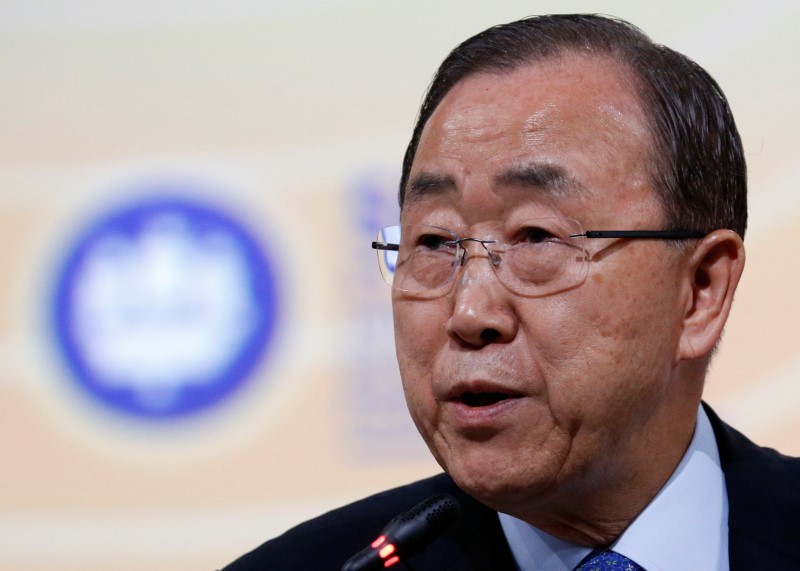DUBAI (Reuters) - U.N. Secretary-General Ban Ki-moon said on Tuesday that Bahrain's dissolution of its main opposition group risked escalating tensions in the Gulf Arab kingdom beset by a growing rift between a Shi'ite Muslim majority and its Sunni rulers.
Since June Bahrain has taken a series of steps that activists describe as a renewed opposition crackdown, including the arrest of prominent activist Nabeel Rajab and stripping top Shi'ite cleric Isa Qassim of his citizenship.
"The Secretary-General deplores the dissolution of al-Wefaq, the main opposition political party in Bahrain," a statement from Ban's spokesman said.
"(The moves) risk escalating an already tense situation in the country. He calls for the resumption of an all-inclusive national dialogue," the statement said.
The authorities announced the closure of al Wefaq in June, accusing it of fostering violence and terrorism.
Bahrain, host of the U.S. Fifth Fleet, dismissed U.S. and British criticism of this move as "unacceptable interference". Its high court ratified the decision on Sunday.
Al Wefaq played a leading role in a 2011 uprising during which mostly Shi'ite protesters called for a greater share in power and an end to discrimination by the government. The government denies discriminating against Shi'ites.
Bahrain suppressed the uprising with military help from fellow Sunni-ruled neighbours like Saudi Arabia.
Al Wefaq leader Sheikh Ali Salman had his sentence more than doubled last month to nine years after an appeals court convicted him on charges of seeking the violent overthrow of the government.
Ban's office described the dissolution of al Wefaq as part of a wider clampdown on freedom by the Bahraini authorities.
"The move is the latest in a series of restrictions of the rights to peaceful assembly, freedom of association, and freedom of expression in Bahrain," the statement said.
Bahrain says a minority inspired by Iran are trying to foment sectarian unrest in the kingdom and blamed them for a series of bomb attacks targeting security forces in recent years.

A group of four top Shi'ite clerics said on Tuesday that the government actions threatened their sect's existence in Bahrain.